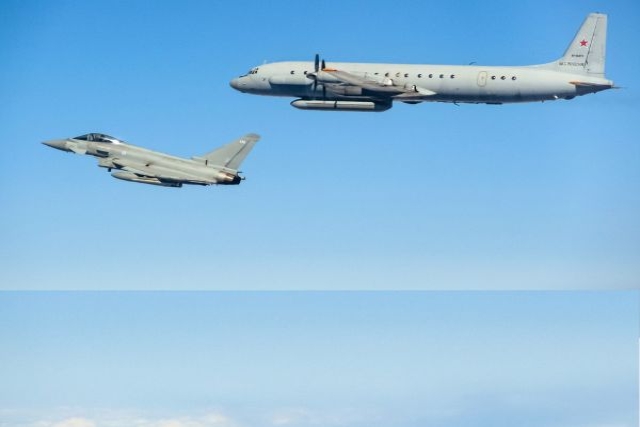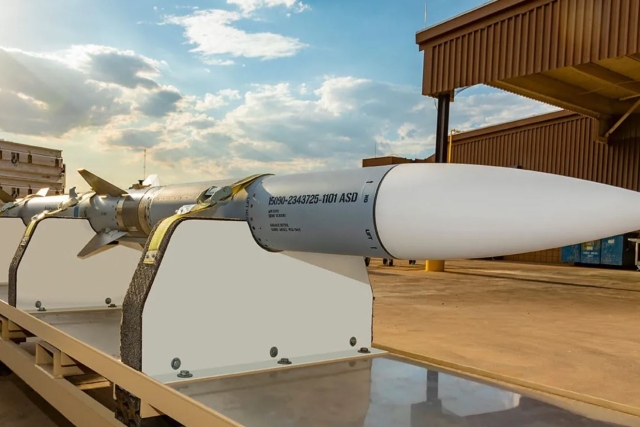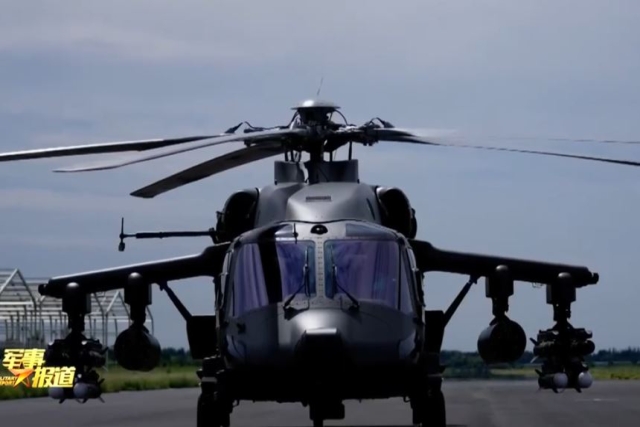IWI Launches Uzi Sub Machine Gun Successor

Uri Amit--The Man Behind The New Uzi
Some 56 years after the introduction of the Uzi Sub Machine gun, the Israeli Weapons Industry has introduced the Uzi Pro. Defenseworld.net spoke to URI AMIT, CEO of Israeli Weapons Industries on the significance of the launch of the new weapon.
DW : Can you give our readers an idea of the approximate number of IWI weapons and the countries they are used in? Can you highlight the reasons for your success in this field?
Uri Amit, CEO, Israeli Weapons Industries: IWI offers an extensive variety of weaponry solutions in the form of various families of products successfully serving a wide spectrum of needs and requirements in dozens of countries worldwide. Each weapon family, such as machine guns, assault rifles, sniper rifles, etc., includes a number of models and variants. This rich spectrum enables our clients to always find the exact, most-suitable product to meet their specific mission requirements. Of course, we cannot discuss our clients’ affairs nor go into detail in that regard, but it is suffice to say IWI is widely present worldwide. In that I imply to some of our brands, such as the legendary UZI, of which millions of units have been sold to date, others of which the numbers reach hundreds of thousands and the latest models of which we’ve only sold tens of thousands as yet. We owe this impressive success to a combination of qualities and characteristics, of which we’re both famous and proud, and which basically can be summed up as uncompromised quality of products, of service & support and of long-term customer-relations. IWI’s weapons are considered excellent as they are reliable, modern, ergonomic, versatile and are developed in partnership with the IDF (Israel Defense Forces), obtaining unrivaled combat experience. Our service is known to be prompt and our support comprehensive. We hear our customers, and provide them with the package best meeting their needs.
DW : Pistols and machine guns manufactured by IWI have been used for decades in numerous countries. Does IWI have any new projects coming up in the future?
Uri Amit, CEO, Israeli Weapons Industries: Of course. IWI always holds new developments and latest achievements up it’s sleeve. Along with our traditional accomplishments of repeated sales through decades worldwide, IWI is constantly engaged in improving its products-line, investing heavily in the development of new and advanced generations to existing families, making them better fit to the latest needs, more agronomic, and more. All of these new solutions are based on previous and successful generations and on the lessons learned through battle. Some of the work that the company is currently involved in, developing new products, cannot yet be revealed and will be launched later this year. However, IWI have already exposed some other new developments lately. One of such announcements is of the UZI PRO -- an advanced version of the Micro UZI -- a small and modern submachine gun, exceptionally suitable for concealed carry and easy to use.
DW : The Uzi Submachine gun has been in use since the 1950s. How different is the latest Uzi gun from its other versions?
Uri Amit, CEO, Israeli Weapons Industries: Unlike its legendary predecessor, The UZI PRO, which is entering the market these days, is much smaller and not intended for standard military use, but is rather an ideal solution in both a concealed or openly carried use, for police forces, body guards, Special Forces and such. This lightweight, compact submachine gun fires from closed bolt, has many components which are made of advanced polymeric materials, and has many other advantages, such as Picatinny rails, ergonomic butt, built-in foldable assault handle, pistol-type magazine release button and more.
DW : What trends do you see developing in the weapons technology field?
Uri Amit, CEO, Israeli Weapons Industries: In recent years we have witnessed several prominent trends, some contradictory to each other. The CQB urban terrain, short ranges fighting concept is gaining ground, resulting in a demand for compact weapons, such as the TAVOR or the X95, which is equipped with a reflex sight and even a visible laser pointer. At the same time there’s a comeback of 7.62 mm and sniper rifle .338 mm that can engage targets at longer ranges. Another current demand is for a weapon system capable of continuous shooting day and night. The 5.56 mm caliber has survived the popularity gained by the exotic 6.8 mm, 6.5 mm calibers, and is set to remain the main caliber for the next few years.
DW : What is your vision for the future soldier?
Uri Amit, CEO, Israeli Weapons Industries: Current and previous concepts of soldiers' usage were based more or less on the individual soldier, being perceived as the basic independent unit within a military force – sensors wise and firepower wise. Interestingly, this concept moves more and more, in the recent years, into seeing a "team" as the nucleus of the fighting force. This team may be composed from different elements, for gathering the information, for processing it, and for executing fire. This new approach to the "Future Soldier", seeing the team as the basic unit and thriving towards turning it into a single well-functioning mechanism, has resulted in new programs, involving heavy and sophisticated equipment as well as new necessary training. Now it is the "team" who identifies the enemy, its location and position, transmits the data to another post, not necessarily get directly engaged with the enemy, as that final confrontation might be executed by another, such as a remote vessel. In an asymmetric battle environment, as many of today confrontations are, enemy is often an individual, lightweight, mobile fighter, armed with a simple weapon. Such an enemy is an agile, independent, flexible unit of combat. The excessive complexity and sophistication used by the operating team according to the newer discipline may, sometimes, be found not an advantage in such a scenario and might even fail the team when confronted with such agile rival. It seems we will witness a demonstration of pro’s and con’s in favor and against each of the two concepts, and the one proven to be more effective is yet to be decided, which will be the issue at hand in the upcoming years.
DW : IWI has been offering Anti-Terrorism Training lessons to Israeli citizens. How important is it to train civilians and do you see opportunities for such training in India?
Uri Amit, CEO, Israeli Weapons Industries: Terror is to be fought against by professionals, specifically trained to do so. It is not up to a civilian population to fight a terrorist attack or confront terrorists in any way. Average civilians will not be able to, nor should they be expected to develop the skills required for handling a terrorist attack. Moreover, they might even pose a risk to other nearby civilians and officials. With that said, any training that is aimed at raising public awareness of terrorist threats is valuable and may even prove as a life-saving factor in threatening circumstances such as these.
DW : Israel and India have had a long-standing weapons exchange relationship. How important are the two government's ties to IWI?
Uri Amit, CEO, Israeli Weapons Industries: The governments of both our countries demonstrate the value of their cooperative relations as a key factor and great contribution towards productive and fruitful defense cooperation. IWI has gained its reliability in the Indian market with its cutting-edge weapons and comprehensive customer support and we have follow-on orders as the evident to the satisfaction with our service.
DW : Can you name the companies you currently have ties with in India?
Uri Amit, CEO, Israeli Weapons Industries: I'm afraid we cannot disclose such information.
DW : What weapons does IWI supply to India?
Uri Amit, CEO, Israeli Weapons Industries: All weapons that are manufactured by IWI are present in India and are used by the military, police and other security forces. Those include among others the NEGEV, TAVOR, X95, ACE, UZI and the GALIL Sniper.










